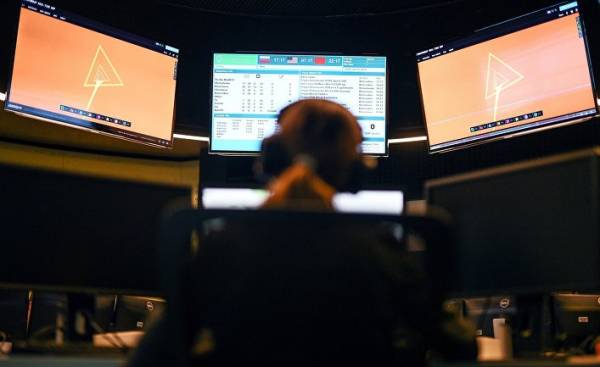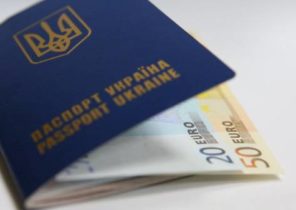
Security Protocol prescribes to leave the room mobile phone and a “stick” that I use as a keychain. Any electronic devices is prohibited. We go to the territory of the theater of operations of the largest energy companies of Israel, near Haifa. On the big screen displayed a map of the world and seen hundreds of little lights that travel from different points on the Earth towards the same goal — that of the company. The map shows in real time all computer attacks (thousands per hour) which it is exposed. The writing on the wall reminds that this is not a video game: “Safety does not tolerate pauses, so we don’t sleep.”
Most e-attacks are pretty harmless and easily recognized protection systems. However, there are some that contain very, very dangerous software (so called malware, malware) designed to damage the object or embedded in it. The company, in which we find ourselves, provides 70% of the country’s energy supply, in view of what in any state it would be considered critical infrastructure. Temporary or permanent cessation of her work will lead to emergency situation in the country. Israel Electric is not reported whether the company ever close to a similar situation. Even if there were, they would hardly have admitted it.
Map glowing on the wall that displays the vicissitudes of the conflict that takes place not on earth, not the sea, not in the air or in space, where there were wars of the second half of the last century. Tranches current stretches on the Internet, which the Economist magazine dubbed the “fifth power”. Battles of the Third world are conducted in an artificial world created by electronic means. The fact that until recently seemed impossible, became a reality — trump, China, Israel, Europe… 2017-yy was the year when the digital confrontation with unpredictable consequences beginning to be felt in the analogue world.
The definition of these processes as world war II is absolutely not an exaggeration, if we turn to article encyclopedia: “a large-Scale conflict, which involved a large number of States in different continents”. Of course, WW III, or Cyber — that’s how will be its historians, has hitherto unknown characteristics. Military operations are conducted secretly, without banners, without pictures and in utter silence. All that is known about it, according to the company’s cyber security or “merge” characters like Snowden (Snowden), manning (Manning) or WikiLeaks activists under the leadership of Julian Assange (Julian Assange). A recent statement of these last, once again became a sensation. In the coming days, WikiLeaks will begin publishing documents about the programs that the CIA uses to spy using any device connected to the world wide web. Some great surprises.
Spain is also fighting, along with all other countries. According cryptological center at the State intelligence management, 3% of all cyber attacks last year on the state system or the company’s strategic importance was very high or critical severity (maximum risk). An estimated three out of four attacks are committed by orders of foreign States. Russia and China are most aggressively tuned against Spain. Their main goal is obtaining information.
The chronology of global cyber war is very complicated. She had no obvious detonator, neither of the two warring parties, as in the physical world. Nobody killed Austro-Hungarian Archduke in Sarajevo, no army invaded Poland. Historical precedents ceased to serve as a starting point. “In a sense it puts the point and the concept of a traditional state,” explains a senior officer from the office of cyber defense armed forces of Israel. — “Suddenly the borders are losing importance, international law does not work, or everyone understands it as wants… All the rules of the law of the jungle”.
Unlike football, in cyberspace it is much harder to defend than to attack. So governments and corporations have entered a new arms race, this time hunting for programmers and information technology. “Having beaten off one attack, you know that the enemy will be back tomorrow. You have to win every day, and it is enough of one of your mistakes to win,” — said the employee of the Russian company, specializing in cyber defense, “Kaspersky Lab”, the Spaniard Jose Selvi (Selvi Jose), the Problem is that to defend is necessary each time, more and more boundaries — this year the number of gadgets connected to the Internet will reach 8.4 million — more than people living on the planet. Too many doors for those who want to enter without knocking.
“Kaspersky lab”, being one of the leaders in the sector often acts as megatexture in numerous proceedings related to the information war. Such was the case with Stuxnet, the first, according to many experts, a virtual virus that can physically destroy infrastructure. It is a computer worm (a type of malware, self-propagating via local and global computer networks), which in 2010 infected the computer system of Iran’s nuclear programme with the aim to suspend it.
“Cyberutopian” something similar with the game “Mafia” — need to figure out who the murderer is, what weapon he used and where the crime was committed. As in the game and in the life of a criminal always leaves clues by which it is possible to find. To identify the author of attacks difficult, even if you specify the IP address of the computer from which it was made. The reason, largely, is a frequent use of hired hackers (sponsored by particular countries but operating independently). This tactic is used to cover up the real enemy and reduces its risks. Very often one only has to look at the map and the list of commercial or military rivals to figure out who might be behind the computer aggression. And this foe, unfortunately, there are in each country.
The experts of “Kaspersky Lab” described Stuxnet grim prose in the spirit of the Gothic novel: “It’s powerful and scary prototype of a cyberweapon that will lead to new global arms race”. Its sophistication left no doubt in the fact that the development of the virus took a few affordable technological capabilities. The New York Times attributed the authorship of Israel in cooperation with the United States. When we asked about Stuxnet representative of the office of the Prime Minister of Israel, he gave an evasive answer: “I don’t know what it is.”
Denial is another defensive weapon in the digital jungle, where it is not customary old-fashioned Declaration of war.
It is not in manners. Modern society, especially in Europe, very far from Patriotic fervor, which was marked by many wars of the past, such an announcement would cause panic in the people and a powerful wave of protests.But, besides, there is strategic calculation: “If another country using cyber-attacks and destroys your critical infrastructure and kill your citizens, could cause a very real backlash by force. So no one will ever recognize,” confirms General of a military superpower.
The need for constant fierce counterattack justified in the NATO document, known as the “Tallinn textbook”, which contains the rules of cyberwar. One of the most controversial is the justification of the destruction of the hackers of the enemy, even if they are civilians, if they have caused serious harm.
This proves the strategic importance of cyberview in the conflicts of the XXI century. Very often they are much more useful than Panzer division… and less costly. When the United States during the Second world war dropped atomic bombs on Japan, they not only made military purpose to accelerate the surrender of the enemy, but also deprived of all possible rivals desire to challenge their leadership. The nuclear monopoly of the Americans lasted until the USSR made their own bomb in 1940.
In cyberspace, everything is different. A program like Stuxnet like a bee — once plunging its stinger, it dies. Technological age, such weapons ends as soon as it is used to achieve the goal, because it can be detected and decrypted by the other participants of the information war. In case of success occurs innovative leap, and soon everyone will get the opportunity to develop new forms of malware. So fueled by race cyberwar capabilities.
It’s all connected. Threats in the ring, the criminals who want to steal our money, and enemies, who dreams to reveal our secrets, it is difficult to estimate a steady flow of our everyday virtual life. And it’s very simple — in a cyber war has no casualties, although the civilian population and begins to experience serious inconvenience. As threats continue to grow.
What happens if someone will be able to manipulate with all the city traffic lights or dispatcher towers airport? Unfortunately, recent events have demonstrated gaps in the protection of many information systems for civilian use. The so-called economic war, strongly linked to industrial espionage and the guilty to the downsizing of jobs and investment, adding real attacks, as those that took place in Ukraine.
Two days before Christmas 2015, a virus called BlackEnergy, were infected with one of the power stations the countries of Eastern Europe. The malware would delete the data and disable the system of this critical infrastructure. More than 600 thousand people in the winter were left without heating for a few hours. Kiev has accused Russia in the attack. Cyber war has ceased to be a matter exclusively of spies, military and businessmen, the professionals of three areas, well known Efrati Rami (Rami Efrati).
We meet him at one of the restaurants of tel Aviv. Efrati — natured old man — speaks English with a strong Polish accent. For 28 years he served in army intelligence and now runs his own cyber security company. This is another example of the boom in this multi-million industry that is recruiting the most talented young physicists and mathematicians.
Efrati not watched the film about Edward Snowden (Edward Snowden), a former NSA analyst who told the world about total espionage undertaken by the United States. Rami did not rule out that more pomotrite it, since the film, he says, is in some theaters of the city. But this is hardly a picture by Oliver stone (Oliver Stone) will make him change his opinion: “Any person who worked in intelligence, will tell you that Snowden is a traitor,” he says.
Few cartographers, the cyberworld can outdo Efrati. He knows the deep trenches of the Network, this black market, unattainable for mere mortals, where there are all — darknet (darknet) (literally, dark). Rami describes it as “a place where you can buy the most sophisticated cyber weapons and hire programmers of a high level. Thus, the belligerents are equal in rights, and the most advanced country is not the only players. Having money, terrorist groups and criminal mafia have the ability to arm themselves to the teeth to wage cyber war”.
This is the dark side of cybersecurity, but there is lit. Namely, the light of neon signs. Anyone who has visited the largest specialized exhibition (travel whether by road or astronomicheskoi) knows what we are talking about strolling through the corridor between tightly standing stands. Around flashed a smile, ties, flyers and pens garish corporate colours. The CyberTech exhibition in Telavive exactly the same, the same atmosphere, but there is going color business specializing in security services. Even the “Mossad” your booth with a box for applications service.
According to forecasts of the analytical Agency Gartner, in 2020 the world about 150 billion euros will be spent on cybersecurity. New technological El Dorado. That is why the entrepreneurs who succeed with their start-UPS into new rock stars — a kind of expansive millionaires who give out autographs and take selfies with “a groupie” from the tribe of Internet users. “Seek not to ensure that your son is the new Messi, convince him to develop an antivirus program” — that’s the unofficial motto of this major event.
And, of course, Rami Efrati walking there on the floor paths, charming, smiling and handing out business cards nimble fingers of a magician.
Five months ago States, cyber criminals and terrorists with samorodnostju moved in the information space. Everything changed last October, when the army of hackers of unknown origin at 11 o’clock off the Internet all over the East coast of the United States, denying access to the requested resources millions of users on the planet. This happened in the so nazyvaemoi attacks such as “denial of obsluzhivaniye” (DDoS), when the ISP subjected to a mass attack, is choking on excess traffic. Imagine that you are working with Kathir in the Bank, and suddenly your window built a million customers, each of whom wants to invest one Euro…
The collapse resulted in the termination of such popular resources like Twitter, Amazon, Netflix and The New York Times. For the first time a mass attack was made in “Internet of things” (everyday objects connected to the Network) — hackers have carried her through the surveillance cameras, TV decoders and home routers. The originality of the attack puts an edge on view Enrique Avila (Enrique Ávila), Director of the State research center of cybersecurity, a problem that sooner or later have to face the international community — gaps in electronic security distribution chain all purchased goods.
“Technology industry produces everything in China because it is cheaper, says Avila. In cities like Shenzhen (employing 6000 industrial objects, industry) gather most of electronic devices. In such conditions it is impossible with due diligence to monitor the safety of each component has software that can be hacked. We don’t even know if a compromised device before going on sale”.
Large-scale sabotage in the Ukraine and the United States has demonstrated that the struggle in cyberspace has moved to a new level. Alarms in the West began to flash bright red.
And then trump did it. Became the 45th President of the United States.
Russian interference in the presidential campaign of this magnitude was a significant milestone in the history of the first World cyber war. What was not achieved by the Red army during the cold war, its nuclear warheads and a military presence in Cuba, Vladimir Putin made a single keystroke, affecting the election to the most powerful man in the world. December 9, Washington Post wrote that CIA accused close to the Kremlin sources in the transfer to WikiLeaks of hacked ‘ e-mail addresses of participants of the election campaign of Hillary Clinton (Hillary Clinton) in order to stop her career in the White house. To my great surprise, the law of silence has been broken. One superpower accused the other of gross interference in its internal Affairs.
Pran, was developed by hackers believed to be hired by the Russian intelligence (GRU), was executed using the so-called “directional phishing” (spear phishing), varieties of Internet fraud, the purpose of which is obtaining access to confidential data of users. This goal was achieved when a few democratic politicians were fake links, opening a Pandora’s box.
Meanwhile, Europe waits incredulously. Her community is wondering what can happen now, after what happened with the first superpower in the world. Everyone is nervous, no one understands what is happening, the incoming information is alarming. The Dutch authorities, fearing the interference of hackers in the election process, in February announced the cancellation of electronic voting and return to manual counting of votes. But control over the voting process is not all. In the midst of the era of “posttrade”, after Breccia and victory trump the manipulation of data and supervised the stuffing extracted by hackers of information in social networks can be a very effective weapon during the elections in France, Germany and Italy. The heyday of populism and the crisis of the European project, they weaken not only information protection, but also social.
“This is war!” — as told to (Groucho) Marx. Only thing left is to figure out who wins.







